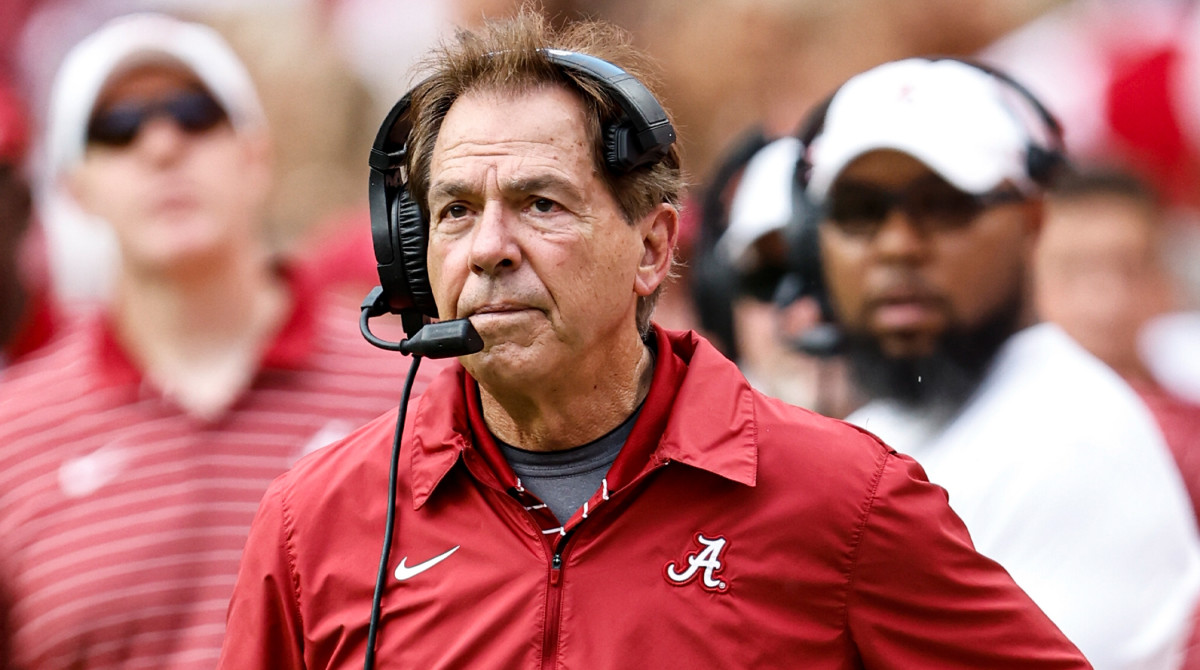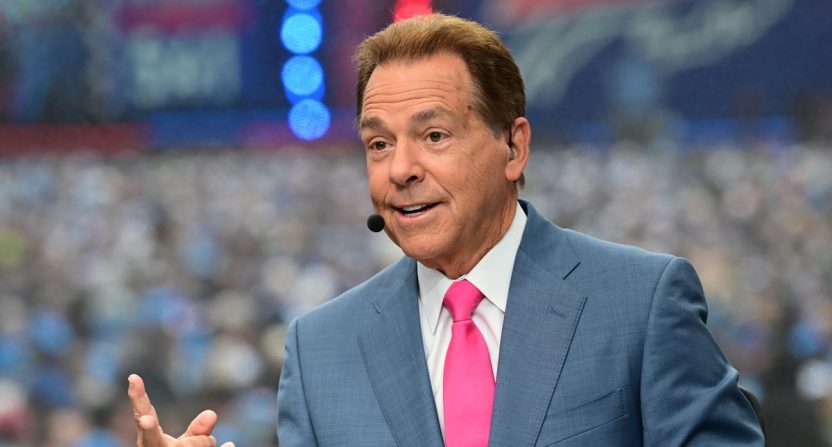When it comes to the world of college football, few names resonate as powerfully as Nicholas Saban. Known more commonly as Nick Saban, his unparalleled achievements as a coach have earned him a place among the most significant sports figures in history. With an unwavering commitment to excellence, a focus on discipline, and an unmatched ability to adapt, Nicholas Saban has built a legacy that transcends the football field. This article delves deep into this iconic coach’s life, career, and enduring influence, highlighting how he transformed the sport and inspired generations of players.
Early Life and Roots of Nicholas Saban’s Passion for Football
Born on 31 October 1951 in Airmont, West Virginia, Nicholas Lou Saban Jr. grew up in a tight-knit community where hard work and perseverance were valued above all else. His father, Nick Saban Sr., ran a local service station and coached youth sports, exposing young Nicholas to the principles of leadership and teamwork from an early age. These formative experiences instilled in Saban a strong work ethic and a passion for football.
Saban attended Monongah High School, where he played as a quarterback. Although he wasn’t the most physically gifted athlete, he made up for it with intelligence, determination, and an acute understanding of the game. After high school, Saban played defensive back at Kent State University under head coach Don James, whose structured coaching style would later inspire Saban’s career. During his time at Kent State, Nicholas Saban began to see football as a game and a platform for teaching discipline, accountability, and excellence.
The Early Coaching Years: Building the Foundation of Success
After earning his bachelor’s degree in business and a master’s in sports administration, Nicholas Saban began his coaching career as a graduate assistant at Kent State in 1973. Over the next decade, he was an assistant coach at several universities, including Syracuse, West Virginia, Ohio State, Navy, and Michigan State. These early roles allowed him to learn from some of the most respected minds in the sport, helping him develop a diverse and sophisticated coaching philosophy.
1990, Saban got his first head coaching opportunity at the University of ToHeon; he turned the team around in one season, eading them to a 9-2 record and a share of the Mid-American Conference (MAC) title. While his tenure at Toledo was brief, it indicated that Nicholas Saban was destined for greatness.
Dominance in College Football: Nicholas Saban and the Alabama Dynasty
While Nicholas Saban experienced success during stints with Michigan State and LSU—where he won his first national championship in 2003—his legacy reached its zenith at the University of Alabama. Saban took over as Alabama’s head coach in 2007, inheriting a program that had struggled to maintain its once-storied tradition of excellence.
What followed was nothing short of extraordinary. Over the next decade and a half, Nicholas Saban transformed Alabama into the gold standard of college football, leading the Crimson Tide to six national championships (as of 2023). His teams consistently ranked among the best in the nation, characterized by relentless defense, explosive offense, and a culture of discipline that became synonymous with Alabama football.
Saban’s recruiting prowess played a significant role in his success. Known for his ability to identify and develop talent, he consistently brought in top-ranked recruiting classes. Players who came through his program, such as Julio Jones, Derrick Henry, Tua Tagovailoa, and Bryce Young, became NFL stars, further cementing Alabama’s reputation as a breeding ground for elite talent.

The Coaching Philosophy of Nicholas Saban: “The Process”
One of the hallmarks of Nicholas Saban’s success is his unwavering commitment to “The Process.” This philosophy emphasizes focusing on the present moment, controlling what can be controlled, and taking small, incremental steps toward achieving long-term goals. Instead of fixating on outcomes like winning championships, Saban encourages his players and staff to concentrate on daily improvement and preparation.
“The Process” extends beyond football. Saban’s meticulous attention to detail and ability to create a culture of accountability has made him a role model for leaders in various fields, from business to education. His approach teaches the importance of preparation, resilience, and maintaining a high standard of excellence in all endeavors.
The Impact of Nicholas Saban on His Players and the Game
While the championships and accolades are a testament to SSaban’sgreatness, his true legacy lies in his impact on his players’ lives. Nicholas Saban is known for his tough-love approach, holding his players to the highest standards on and off the field. He emphasizes the importance of education, often reminding his players that football is only a part of their lives and that they must prepare for success beyond the game.
Many of Saban’s former players have spoken about how his guidance shaped their character and work ethic. Whether they went on to have successful NFL careers or pursued other paths, the lessons they learned under Saban’s tutelage have stayed with them for life.
Additionally, Nicholas Saban’s influence on the sport of football is immeasurable. His success has inspired countless coaches to adopt elements of his philosophy, and his ability to adapt to changes in the game—such as the rise of spread offenses and the transfer portal—has kept him at the forefront of innovation. Simply put, Nicholas Saban has set a standard of excellence that future generations of coaches will strive to emulate.
Challenges and Criticism: The Other Side of Greatness
Like all,, sigan’s career has faced chllenges and controversies. Early in h HLk likell significant fifiguresacareershis brief foray into the NFL as head coach of the Miami Dolphins (2005–2006) was widely viewed as a misstep. Saban’s coaching style, which thrives in environments where he can exert complete control, didn’t translate as effectively to the professional level. However, he used the experience as a learning opportunity and returned to college football even more determined to succeed.
Saban has also been criticized for his intense coaching style, which some have described as overly demanding. However, many of his former players argue that his high expectations prepare them for the rigors of life and professional sports. Saban has often said that his goal isn’t to be liked but to help his players become their best versions.
Nicholas Saban’s Legacy: More Than a Coach
Nicholas Saban continues to lead the Alabama Crimson Tide, and his influence shows no signs of waning. With numerous championships, NFL draft picks, and a legacy of excellence, Saban’s career is a testament to the power of hard work, discipline, and a relentless pursuit of greatness.
Beyond the accolades, Nicholas Saban is a teacher, a mentor, and an architect of dreams. His ability to inspire those around him to reach their full potential has made him more than just a football coach; he symbolizes what it means to be a leader. Whether on the sidelines at Bryant-Denny Stadium or speaking at a leadership seminar, Nicholas Saban’s message is clear: greatness is a choice, and it’s achieved one step at a time.
Conclusion: The Enduring Influence of Nicholas Saban
In the annals of sports history, few figures have left a mark as indelible as Nicholas Saban. His remarkable career, characterized by unparalleled success and a steadfast commitment to excellence, has elevated him to a status reserved for legends. Saban’s legacy isn’t just about the championships and accolades; it’s about the lives he has impacted, the lessons he has imparted, and the standard of greatness he has set for future generations.
One thing is sure as we look to the future: Nicholas Saban’s influence will endure, both on and off the field. His name will forever be synonymous with the pursuit of perfection, serving as a reminder that with hard work, dedication, and a relentless focus on “The Process,” anything is possible.



